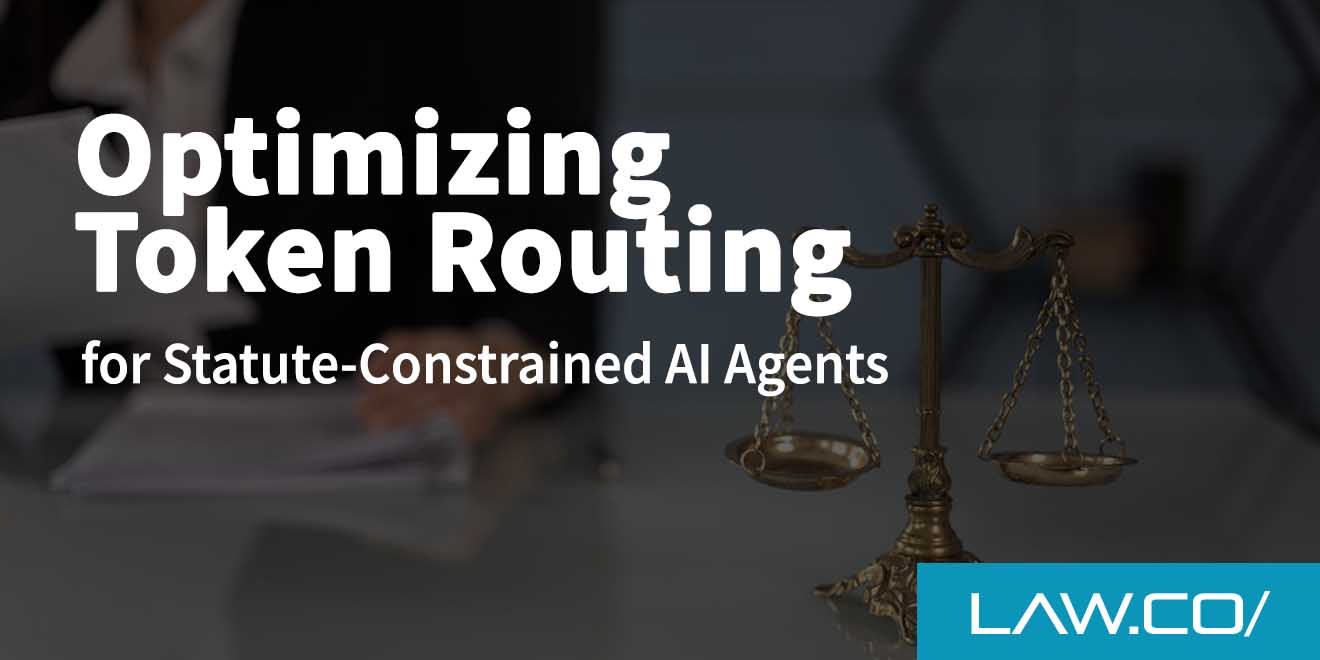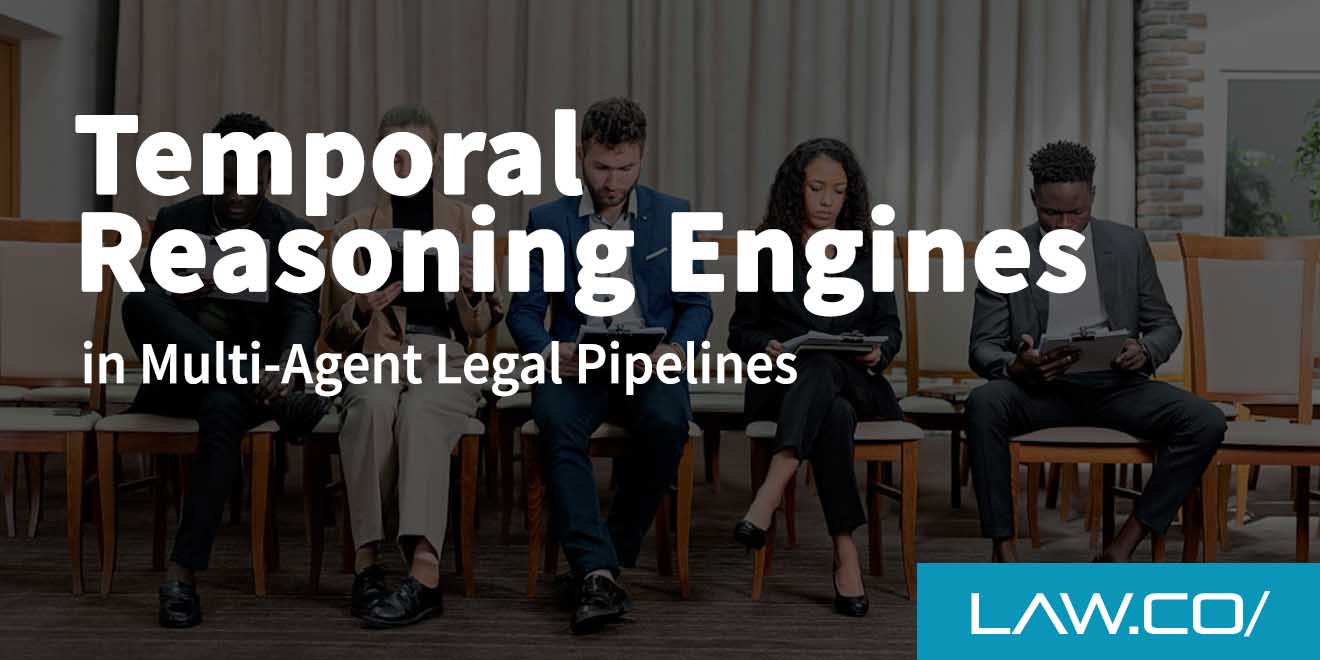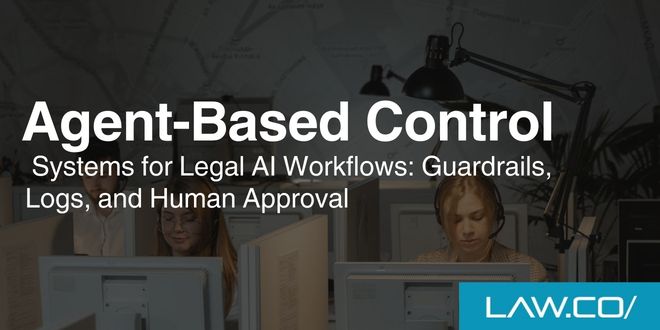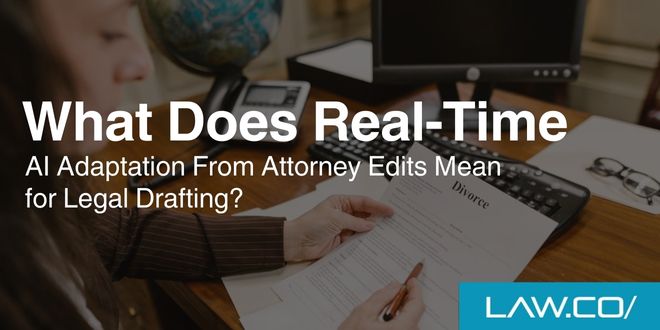

How Legal AI Increases Productivity for Real Estate Lawyers
There genuinely aren't enough real estate lawyers.
Real estate law is complicated, challenging, and yet necessary to navigate for countless business endeavors and personal investment goals.
As a real estate lawyer yourself, you understand the full value of your services. But you probably also struggle with productivity and efficiency. There simply aren't enough hours in the day to do everything you want to do, or serve all the clients you want to serve.
Legal AI is changing that.
With the help of a sufficiently powerful and reliable legal AI engine, even the most efficient real estate lawyers can get more done every day and reallocate their time to focus on more important priorities.
So how exactly is it that legal AI increases productivity for real estate lawyers?
And how can you take advantage of this power for your own practice?
The High Level: AI for Real Estate Lawyer Productivity

There are many different types of AI products out there, but most of them are capable of some combination of the following:
· Accelerating production. Real estate law requires a lot of documentation, and all those documents need to be written, sometimes from scratch. Even if you have standard templates that you work with, altering and reviewing those contracts is extremely tedious and time-consuming. However, with the help of generative AI, you can create documents from templates or from scratch in record time. What used to take hours can be condensed to minutes in many cases.
· Automating routine tasks. Legal AI is also exceptional at automating routine tasks, such as drafting boilerplate contracts or reviewing documents. Historically, big law firms hired young, inexperienced real estate lawyers straight out of law school to have them deal with all the tedious, repetitive, low-level tasks that are necessary to keep the organization moving. But now, most of those routine, predictable tasks can be almost fully automated by AI.
· Verifying information (and compliance). Much of a real estate lawyer's job is related to research and reading; it's important to fully understand the nuances of all laws and regulations if you want to do your job effectively. With the help of AI, you can do it faster than ever, looking up laws, verifying information, and ensuring compliance.
· Redirecting time spent. Improving productivity for real estate lawyers isn't just about taking care of tedious and predictable tasks; it's also about freeing up time so real estate lawyers can work on more important things. In a sense, it's a way of reallocating your time so you can make each hour you spend as valuable as possible.
How Legal AI Can Help Real Estate Lawyers
What follows are examples of specific tasks that AI can help real estate lawyers with. Keep in mind that the best legal AI software on the market can typically handle tasks like these with mind-blowing speed, sometimes taking just minutes, or even mere seconds to finish something that would take a competent human hours.
· Easier contract management. Contract management becomes much easier when real estate lawyers use AI for law firms. You can quickly and easily update contracts according to your needs, without wasting an entire day on the endeavor.
· Faster document preparation. Real estate lawyers are responsible for drafting and finalizing countless types of documents, from foreclosure notices to lease agreements and purchase agreements. While many of these documents require minimal adjustment from existing templates, some of them require much more robust, original drafting. Either way, generative AI can help you draft the content you need with speed and efficiency.
· Law and regulation lookup. Real estate laws are always changing, but you need to acknowledge and understand all those laws if you're going to carry out responsible, ethical legal work. That's why many law firm AI software tools are designed to streamline law and regulation lookup. Once you connect to the proper databases, it should be trivially easy to research and understand all applicable laws for a given situation.
· Conducting property history analyses. Understanding and verifying a property’s history is often crucial to resolving disputes and taking appropriate legal action. Instead of spending hours on this type of task, you can provide a set of simple instructions to your conversational AI engine and let it do the work for you. You may have to take a moment to validate its findings, but it's still going to save you a lot of work.
· Reviewing all work. Legal AI is also exceptional at reviewing, validating, and flagging potential errors in works drafted by real estate lawyers. Think of it as the most helpful second set of eyes you can possibly have.
With the time you save from automating and accelerating these tasks, you can focus your efforts on more important matters, like:
· Building relationships. With real estate lawyer AI doing a lot of the grunt work, you can spend more time being the face of the operation. You can meet new clients, get to know your existing clients better, and build stronger relationships with other lawyers and organizations. As an experienced real estate lawyer, you know just how important it is to build and maintain strong networks – and now, you'll have the chance to do it.
· Negotiating. There are some ways legal AI can help you in a negotiation, such as assisting you with background research, pulling historical data, and even giving you some pointers. But when it comes to actually negotiating, you'll be the one taking the helm. With so much of the tedious work out of the way, you can spend more time, energy, and attention on negotiating to get the best deals for your clients.
· Resolving complex problems. When it comes to simple, straightforward, somewhat repetitive paperwork, AI is king. But when it comes to more complicated, more sophisticated legal dilemmas, human lawyers are going to be exclusively responsible for working on them – at least for the foreseeable future. When your attention isn't occluded by easy, predictable matters, you can bring your full potential when resolving complex problems.
· Taking on new clients. Sometimes, real estate lawyers are forced to turn away clients because they simply don't have the time to onboard them or work with them. After all, demand for real estate lawyers is high and in many areas, there aren't enough specialists to meet that demand. With your new, powerful real estate law AI assistant, you'll suddenly have newfound capacity to take on those new clients.
· Training and guiding new lawyers. Are you a leader in a big law firm, or are you interested in growing your law firm? Real estate legal AI can give you the time necessary to train, guide, and mentor the new lawyers you hire. Additionally, it can take some of the typical entry-level tasks off their plates, so they can focus on more important matters alongside you.
· Marketing and advertising. With more of your real estate law work being handled automatically and quickly, you can dedicate more time and attention on your marketing and advertising strategies. With the help of strategies like search engine optimization (SEO), pay per click (PPC) advertising, and social media marketing, you can greatly increase the visibility of your practice and attract more leads and clients. Oftentimes, marketing and advertising for a law firm are perpetually on the back burner because of a lack of time and resources; with legal AI, this may no longer be an issue.
· Pursuing ongoing education. Ongoing education is critical for new and experienced lawyers alike. It's important to stay updated with the latest developments in the industry so you can continue providing proper service to your clients. With some of your core responsibilities better accounted for, you can pursue ongoing education much more easily.
· Pursuing other work. You can even use your newfound time and flexibility to pursue other types of work or areas of personal interest (especially if you’re running your own practice). You can use your real estate knowledge to find and invest in more rental properties, take on a side gig you’ve always been curious about, or simply spend more time with friends and family members.
The Caveats: How Real Estate Lawyers Should Use and Think About Legal AI
We’re big on AI here.
But even we have to admit there are some drawbacks and weaknesses associated with legal AI – including the best AI tools on the market.
For example, AI is prone to “hallucinations,” or fabricated facts presented as real and accurate. In rare cases, your AI may cite a case that doesn't actually exist or tell you about a law that was never actually passed. AI for real estate lawyers can also present ethical complications, especially if it's being leveraged for the bulk of the legal work being done.
These golden rules can help you use real estate lawyer AI responsibly and effectively:
· Do your due diligence. Before committing to the best AI tool for estate lawyers, you need to do your due diligence. You should understand all the strengths and limitations of AI, you should research the company offering the product, and you should be reasonably confident in the work and recommendations provided by this specific tool. Review several AI tools and develop your own understanding of legal AI before leaning on these tools too heavily.
· Always disclose. You should always proactively and definitively disclose the use of AI in your work. Acknowledge exactly how, when, and why you used this tool to avoid potential ethical issues down the road.
· Always validate. While real estate law AI is remarkably advanced and generally quite reliable, there are occasional issues that can emerge, including AI hallucinations, semantic errors, and even formatting and wording mistakes. That's why, no matter how much you trust your AI legal assistant, you should always take the time to have a human review its work.
Choosing and integrating law firm AI into your work as a real estate lawyer is a powerful investment in the future of your career.
Once you master this new technology, you’ll be faster, more efficient, and more focused than ever before.
It all starts with a free trial.
So what are you waiting for?
Sign up for a free trial of our legal AI today!

%201.svg)










